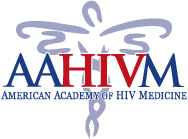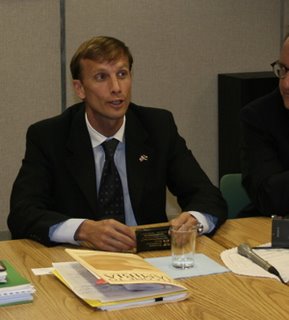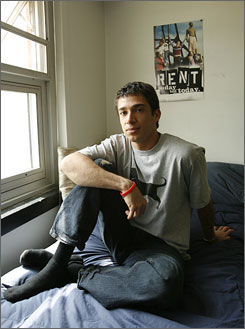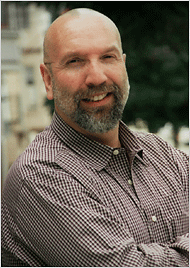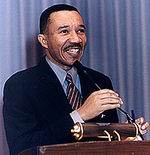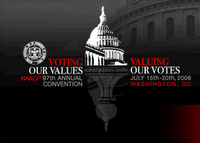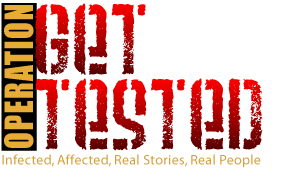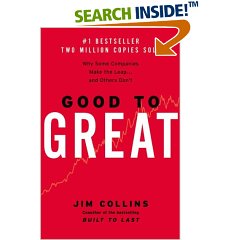Ryan White CARE Act Reauthorization Fact Sheet
July 25, 2006
This fact sheet is intended to update anyone interested on how the CARE Act reauthorization is proceeding with simple facts and information about where we are in the process and what to expect. This fact sheet will be updated and distributed roughly once a month until the CARE Act is reauthorized.
Congressional Update
- After S.2823 was filed in the Senate, the House of Representatives held an off-the-record “hearing” on May 24th. At the session, Members of the Committee made statements about the bill and asked questions of specific stakeholders on various provisions of the legislation. This was the last public communication between Congress and the HIV community.
- The House companion bill to S.2823 was expected to be marked up and filed by the House in June but has not yet occurred. Some Members of Congress have concerns that the data showing how funding would be reallocated were not reliable or would result in significant funding cuts to their states and cities.
- The bi-partisan, bi-cameral group of Congressional staff met privately last Friday, July 14th to discuss potential revisions.
- Though staff will not release any proposed legislative changes, they were expected to consider how to best incorporate HIV case data from states that do not have mature reporting systems or are transitioning from a code to a names-based system.
- On August 1st, both the Senate and the House leave Washington on summer recess which lasts five weeks. They do not reconvene until after Labor Day. Because Members of Congress still do not have firm calculations as to how proposed formula changes would translate into dollar allocations, it is highly unlikely that the House will mark up the reauthorization bill before mid-September.
Q. What is “80/20”?
80/20 refers to the percent of the total formula used in distributing Title II funds to states. Currently, 80% of each state’s Title II funding is based on the total number of people with AIDS in the entire state. 20% of the total funding is based on the number of people with AIDS who live outside a Title I area. This allows states without Title I areas, or with a majority of AIDS cases outside a Title I area, a slight weight in Title II funding.
The reauthorization bill pending in Congress proposes a small change to this formula. 5% of Title II funds would go only to states without any Title I areas. 75% would be distributed based on total number of cases in each state, and 20% would be distributed based on the total cases outside a Title I area. This will result in a small shift in Title II funding away from states whose caseloads are concentrated in urban areas to states where caseloads are more dispersed across the state.
Q. What are “grandfathered” Title I areas?
Grandfathered Title I areas are those which stopped meeting eligibility requirements based on changes made in the 1996 reauthorization of the CARE Act, yet they have been “grandfathered” in, meaning they have been allowed to remain indefinitely as Title I cities.
The reauthorization bill pending in Congress calls for phasing out the grandfather clause. All currently grandfathered areas would remain in Tier Two of Title I for the next three years. After that, if they no longer meet eligibility requirements, they will stop receiving Title I funding.
Other updates
In a speech to the NAACP on July 20th, President Bush called again for the reauthorization of the Ryan White CARE Act:
“Finally, you and I seek America that commits its wealth and expertise to helping those who suffer from terrible disease. We believe that every person in the world bears the image of our Maker, and is an individual of matchless value. And when we see the scourge of HIV/AIDS ravaging communities at home and abroad, we must not avert our eyes.
“Today more than a million of our fellow Americans live with HIV, and more than half of all AIDS cases arise in the African American community. This disease is spreading fastest among African American women. And one of the reasons the disease is spreading so quickly is many don't realize they have the virus. And so we're going to lead a nationwide effort -- and I want to work with the NAACP on this effort -- to deliver rapid HIV/AIDS -- HIV tests to millions of our fellow citizens. Congress needs to reform and reauthorize the Ryan White Act, and provide funding to states, so we can end the waiting lists for AIDS medications in this country.”
- Also, on April 26th, the General Accountability Office (GAO) released a report entitled: “The Ryan White CARE Act: AIDS Drug Assistance Programs, Perinatal HIV Transmission, and Partner Notification.” A three-page statement highlighting the results can be found: http://hsgac.senate.gov/_files/042606Crosse.pdf
For questions on this Fact Sheet or on the Workgroup, please contact any of the three co-chairs:
Ryan Clary, Project Inform rclary@projectinform.org
Carl Schmid, The AIDS Institute cschmid@theaidsinstitute.org
Greg Smiley, American Academy of HIV Medicine: greg@aahivm.org






